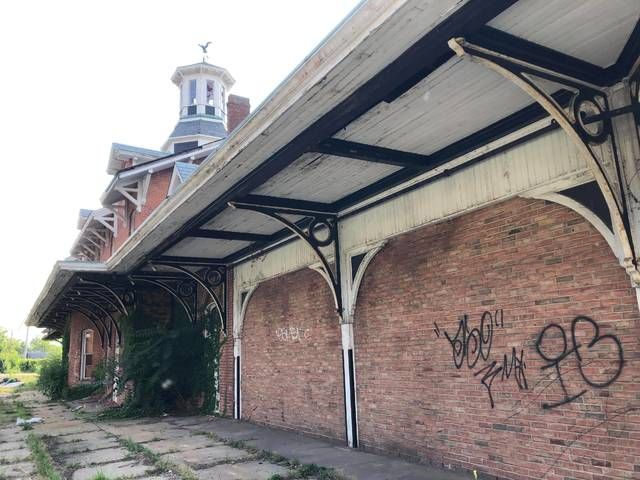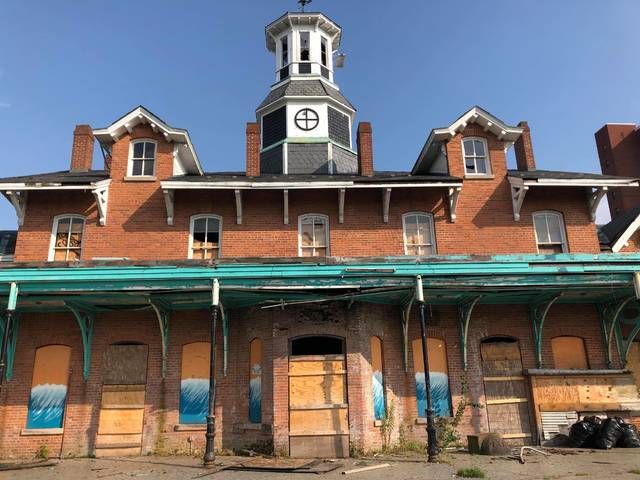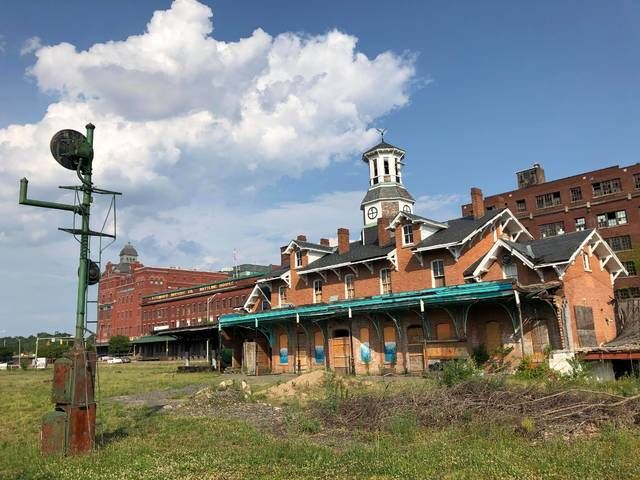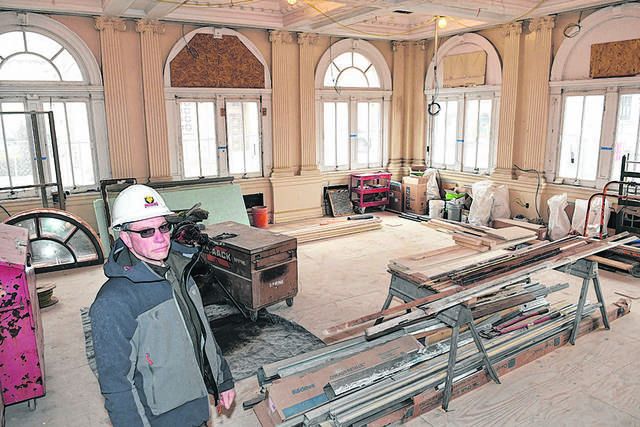
The former Central Railroad of New Jersey Station on Wilkes-Barre Boulevard is seen Monday afternoon.
Roger DuPuis | Times Leader
Click here to subscribe today or Login.
As noted in the accompanying story, the vintage railroad stations in both Tamaqua and Wilkes-Barre are on the National Register of Historic Places.
And yet, as developer George Albert has noted of the Wilkes-Barre station, “I could knock it down and build a new structure for half the price.”
That underscores an important point both about historic preservation and National Register designation: In the end, a property owner’s wishes carry the most weight in most instances.
“From a procedural standpoint, for the most part, National Register designation is mostly honorific,” said Larry Newman, executive director of Wilkes-Barre’s downtown revitalization organization, the Diamond City Partnership.
“It says that what you have is at the highest level of national significance from historic or architectural value, but unless public funds — specific federal funds — are being used to undertake a project in some way, it does not protect a property,” Newman explained.
The inspiration for this series was the demolition of the Frank Clark jeweler building on South Main Street, and a desire by Newman, city Councilman Tony Brooks and others to seek protection for historic structures under city ordinances, something which does not currently exist. It’s an issue that is in the early stages of discussion.
As Newman reiterated, that’s almost the only thing that can stop or delay the owner of a private property from demolishing a building.
“There is nothing in the National Register that prevents that owner from tearing that building down tomorrow,” Newman said. “The only thing that can do that, so a pause can occur is local regulation, which is how the law works. And in Wilkes-Barre that does not exist.”
— Roger DuPuis







